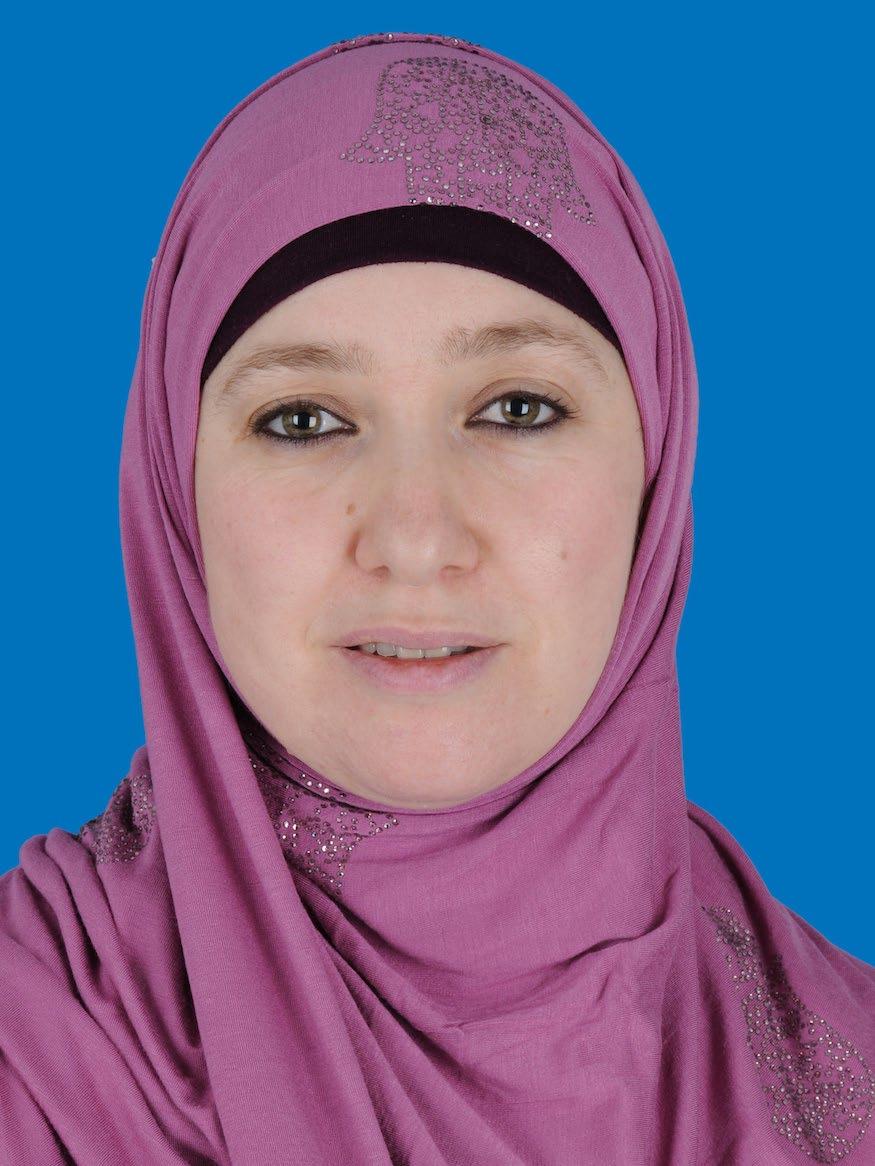
3 minute read
Dr Syham Bentouati, NAFAS International
DR SYHAM BENTOUATI
Founder and Managing Director
Advertisement
NAFAS International
Do you believe that profitability and environmental sustainability can coexist?
I strongly believe that sustainability makes sense not only from an environmental or social aspect, but also from a business perspective and, as such, that profitability and environmental sustainability can definitely co-exist when done properly.
What is NAFAS International vision towards sustainability, and what steps are being taken to achieve the company's sustainability goals? How do you engage employees in sustainability efforts?
As consultants, we strive to include sustainability in all our projects, and we ensure that all stakeholders buy into it and are onboard with us. We make it our mission to spread awareness about all aspects of sustainability throughout our engagements with our clients.
How would you describe NAFAS International culture regarding women in leadership?
From a female angle, I run a 100% female company where we have a culture of mutual support and encouragement. I create an environment where my staff can learn and thrive and provide them the coaching necessary to become the leaders of tomorrow, be it team-based or one-to-one mentoring. I extend this coaching to other young females at an early stage of their careers whether through internships or as part of specific projects.
What does NAFAS International do to help its employees maintain a healthy work-life balance?
At NAFAS, we work on a deliverablebased rather than a number of hours at the office basis, which gives the women in the company freedom to arrange their work and personal tasks in such a way to have a good home-work balance. I believe this is a more practical way of empowering women than a string of programmes and initiatives that are not always ideal to close the gender gap.
Do you believe in affirmative action policies? Does NAFAS International have any affirmative action policies in place?
For me, women empowerment is not about affirmative action, which can sometimes have negative effects. It is rather about removing hurdles and giving the women a fair chance to compete with men. It is practiced in various countries at various levels, from the serious to the “tick in the box” or a PR exercise. This difference is not necessarily geographically or culturally based.
What are the challenges facing women in leadership?
I feel that the biggest challenges facing women in leadership are linked to the fact that they are expected to “prove themselves” and to deliver more than their male counterparts. They are also labelled as “too tough” just because they act as leaders, a label not given to men in a similar situation.
How would you say tackling women’s empowerment changes from region to region? How is it the same?
Having lived in the West and in the Middle East, I don’t see regional differences as such, but maybe from country to country. For example, in Oman, where I live and work, women have senior leadership positions across all sectors in the private and government organisations, including very technical positions, and they do not have particular issues linked to their gender. Maybe only things like limitations on networking outside of working hours as men and women do not mix very much, and a lot of the business is done on the golf course or what is called Diwaniya in the GCC (male gathering place to socialise). This is similar to the golf courses and the gentlemen’s club in the UK for example.
A growing number of governments, organisations, and businesses across the world want to advance women in the workplace, but not always know how. What would you advise them?
I am confident that organisations that are really interested in supporting women to access leadership positions can succeed by removing unnecessary hurdles from their way and by giving them flexibility to help them better manage their work and home lives. Also, as much as possible, provide facilities to support them, such as close-by nurseries.
What advice would you give to women who are seeking out leadership roles?
For women seeking leadership positions, I say: Be yourself! You do not need to become a man to be a good leader. Also, do not try to be a wonder woman, she is a fictional character. Use all the support available to you and help your fellow women.










